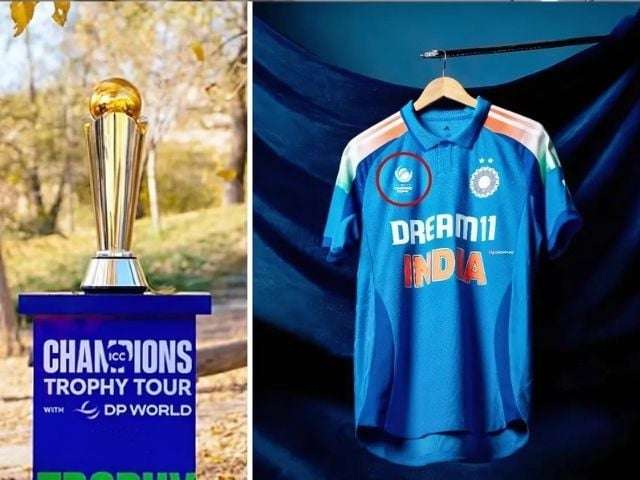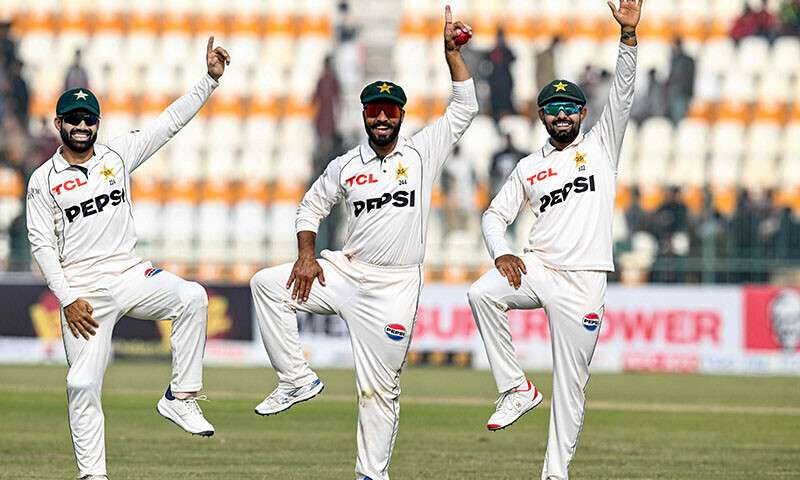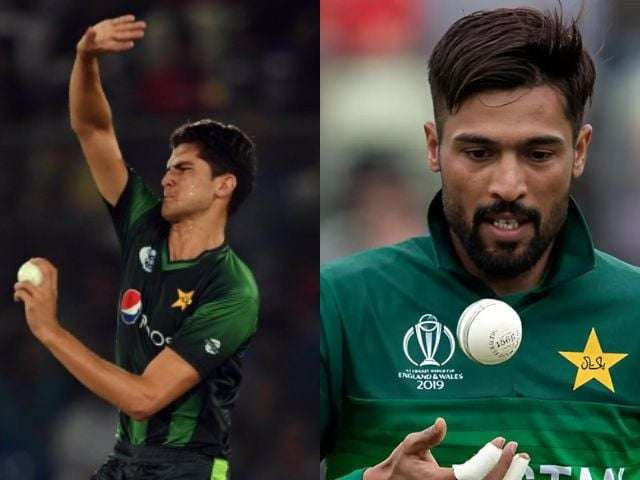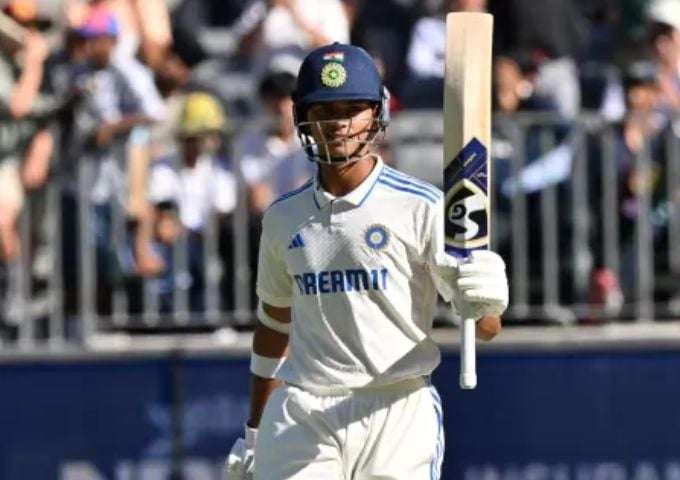The upcoming ICC Champions Trophy 2025 is set to be a momentous event, but it is already making headlines for all the wrong reasons. A new controversy has surfaced regarding Team India’s participation in the tournament, which is scheduled to be co-hosted by Pakistan and Dubai. The Board of Control for Cricket in India (BCCI) has made a controversial decision to not feature Pakistan’s name on India’s official jersey for the tournament. This move follows India’s earlier refusal to travel to Pakistan, leading to the hybrid model for the event where Pakistan remains the official host but India’s matches are relocated to Dubai.
This decision has sparked a wave of reactions, with the Pakistan Cricket Board (PCB) accusing India of politicizing cricket and undermining the spirit of the game. As tensions rise, the issue has become a focal point for both cricket fans and political commentators alike.
In this article, we will explore the details of the controversy, the role of the hybrid model, the political and diplomatic factors influencing the tournament, and the broader implications for cricket and international sports.
The Hybrid Model: A Solution Amid Tensions
The ICC Champions Trophy 2025 was initially scheduled to be held in Pakistan, a long-awaited event for cricket fans in the region. However, political tensions between India and Pakistan led to a standoff, with India expressing concerns over security and diplomatic issues surrounding traveling to Pakistan. As a result, the ICC proposed a hybrid model for the event, a solution aimed at accommodating both host nations while ensuring India’s participation.
Under this hybrid model, Pakistan remains the official host, while India’s matches, as well as potentially some neutral games, are shifted to Dubai. This compromise was seen as a way to navigate the political impasse while allowing the tournament to proceed. However, this arrangement has not been without its challenges and continues to generate significant debate, especially now with the controversy over Team India’s jersey.
BCCI’s Decision: A Refusal to Feature Pakistan’s Name
In a significant development that has added fuel to the fire, the BCCI decided not to include Pakistan’s name on India’s jerseys for the Champions Trophy 2025. The refusal to acknowledge Pakistan as the host nation on India’s official kit has sparked backlash from various quarters.
Pakistan’s officials have expressed their displeasure, claiming that the decision is a reflection of India’s ongoing efforts to politicize cricket. According to a PCB official, India’s actions are a clear indication that the country is blending politics with the sport, which they believe undermines the rules and spirit set forth by the International Cricket Council (ICC). This decision also comes after India had previously refused to travel to Pakistan for the tournament, citing security concerns and political issues.
The BCCI’s stance has escalated the situation further, with some cricket analysts suggesting that the situation could undermine the tournament’s credibility if it continues to be marred by political interference.
The PCB’s Response: Criticism and Calls for ICC Intervention
The Pakistan Cricket Board has been vocal in its criticism of the BCCI’s decision, with officials pointing out the contradiction in India’s position. “First, they refused to travel to Pakistan. Now, they don’t want the host nation’s name on their jerseys. This is not just about cricket anymore,” a PCB official remarked, adding that it is a direct challenge to the ICC’s regulations.
The PCB has also appealed to the ICC to step in and address what they see as a violation of tournament protocols. The board is calling for the ICC to ensure that all participating nations, including India, adhere to the guidelines set forth for the event, which include featuring the host nation’s name on all team kits.
In a statement, the PCB warned that such disputes, if left unchecked, could set a worrying precedent for future international tournaments, particularly in cases where geopolitical tensions exist between competing nations. The appeal to the ICC underscores the growing concern over the politicization of sports and the potential negative consequences for the future of cricket diplomacy.
The Role of ICC in Managing Political Tensions
While the BCCI and PCB are at odds over this issue, the ICC’s role as the governing body of international cricket remains crucial. The ICC, which is responsible for overseeing global cricketing events, has maintained its stance of keeping politics separate from the sport. However, it faces increasing pressure to intervene and ensure that the rules of the tournament are respected by all participating nations.
The issue of India’s refusal to include Pakistan’s name on their jersey raises important questions about the ICC’s ability to manage political tensions and ensure the smooth execution of major events. As tensions rise, many are wondering how the ICC will balance the demands of the cricketing community while addressing the larger political concerns that overshadow the tournament.
Further Escalation: Rohit Sharma’s Absence from Captains’ Meeting
The controversy has intensified with another development: India’s decision to not send captain Rohit Sharma to Pakistan for the captains’ meeting and opening ceremony. The absence of the Indian captain from these important pre-tournament events has further strained relations between the two boards.
The decision to exclude Rohit Sharma from the event has been criticized by many in the cricketing world, as it sets a negative tone ahead of the tournament. Not only does it affect the preparation of the Indian team, but it also casts a shadow over the tournament’s unity and cohesiveness.
The Implications of Politicizing Cricket
The ongoing dispute over India’s jersey and the broader issues surrounding the Champions Trophy 2025 highlight the growing trend of politicizing cricket. Traditionally, sports have served as a neutral ground where countries could compete based on skill and talent, leaving politics aside. However, in the case of India and Pakistan, political tensions have consistently seeped into the sport, affecting not only the players but also the fans and the global cricketing community.
Many cricket fans and analysts are frustrated with the ongoing politicization, arguing that the sport should remain separate from national politics. The introduction of such conflicts into international events can only harm the reputation of cricket and diminish the enjoyment of the game for fans around the world.
The Future of India-Pakistan Cricket Rivalry
The India-Pakistan cricket rivalry is one of the most intense and storied in the world of sports. However, with the increasing influence of politics on the game, it is uncertain how the future of this rivalry will unfold. The Champions Trophy 2025 is a critical test for both countries, as the decisions made now could set the tone for future encounters between the two teams.
While the hybrid model was intended to allow the tournament to take place without conflict, the continued tensions and disagreements are overshadowing the sporting aspect of the event. Both boards will need to carefully navigate these issues to ensure that the spirit of the game is preserved.
Frequently Asked Questions (FAQs)
1. Why did the BCCI refuse to feature Pakistan’s name on India’s jersey for the Champions Trophy 2025?
The BCCI refused to feature Pakistan’s name on India’s jersey as a response to ongoing political tensions and security concerns. India had previously decided not to travel to Pakistan for the tournament, leading to the hybrid model, and now, India’s refusal to acknowledge Pakistan on the jersey adds to the diplomatic standoff.
2. What is the hybrid model for the Champions Trophy 2025?
The hybrid model for the Champions Trophy 2025 was proposed to accommodate both Pakistan and India as hosts. While Pakistan remains the official host, India’s matches, along with potentially some neutral games, will be played in Dubai, allowing India to participate without traveling to Pakistan.
3. What is the PCB’s response to BCCI’s decision?
The PCB has criticized the BCCI for politicizing cricket, stating that India’s actions undermine the ICC’s regulations and the spirit of the game. The PCB has called for the ICC to intervene and ensure compliance with tournament protocols.
4. How has the ICC responded to the ongoing controversy?
The ICC has not yet made any official statement regarding the specific issue of India’s jersey. However, it has emphasized the need for cricket to remain free from political interference and has called for all participating nations to comply with the tournament guidelines.
5. What is the significance of the India-Pakistan cricket rivalry in the context of the Champions Trophy 2025?
The India-Pakistan rivalry is one of the most intense in international cricket, and the Champions Trophy 2025 provides an opportunity for both teams to showcase their skills. However, political tensions have continued to affect the sporting aspect of the rivalry, leading to uncertainty about future encounters.



